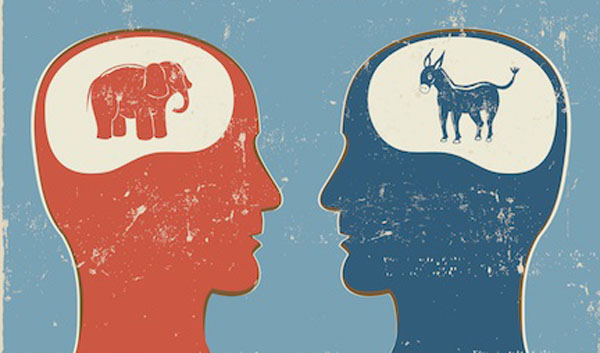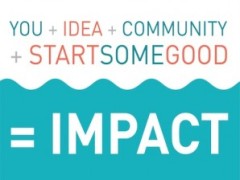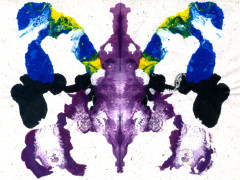Reading and listening to the rhetoric of those on the Right and the Left, I sometimes wonder whether we are watching people of two religions that fundamentally disagree with each other and can’t fathom the world each other lives in.
As a former professor of religious studies at Stanford and other institutions of higher education, this is more than simply an idle question for me. I spent a good part of my adult life studying how religions can become all-encompassing points of view, impervious to other alternative ways of seeing the world.
Of course, political parties would not fit the traditional definition which defines religion as a set of beliefs and practices that are oriented towards some understanding of the supernatural or divine. But broader definitions point out how other types of human commitments resemble religions in the way they can become an all-encompassing point of view and practice.
I’m not saying that our political parties are religions, just that they remind me of religions in some important ways. For example, like religions they often don’t acknowledge what the other recognizes as facts (e.g., climate change), and when they do, they put very different interpretations on those facts that both recognize in common (e.g., the founders gave us a Constitution). They also talk past each other and offer comprehensive points of view that seem impervious to criticism and facts from the other side. Nothing the one side says can change the mind of those on the other. Both sides are sure they are right. The convictions are deeply held, often tied to emotions, and are the basis of ultimate commitment and conscience.
In this sense, the debate between Left and Right reminds me of some of the deep disagreements between Catholics and Protestants in the Reformation and Post-Reformation period (I could have chosen other examples of course). Even though they shared the same scriptures, Protestants and Catholics disagreed on nearly every fundamental assumption of Christianity, about who Jesus was, what God wanted, the role of the Church, the right behavior of an individual to achieve salvation, the role of the priest, to name only a few of the fundamental differences that emerged. Catholics and Protestants went to war over those differences which dominated European political life and killed many people for over a century.
It is instructive to think about how those deep disagreements ended. Neither side won that argument or the wars. What emerged instead was an eventual truce or accommodation in which each side tolerated and eventually accepted the other. The basis of toleration was an emerging agreement to treat religious belief and practice as a private matter (between you and your God) and to create a civil or public space that was religion free and in which all parties could more or less participate. Nation states gave up or lost their tight alignment with one version of Christianity (e.g., England flip flopped several times between Protestantism and Catholicism before finally tolerating all forms of Christianity and religions).
There is a longer more complex and interesting story here than I can tell in a blog. But the analogy is potentially instructive. For it suggests that rational debate may never convince one side or the other. We may be stuck arguing past each other, failing to grasp each other’s comprehensive self-enclosed perspectives.
Is it possible that the methods of creating religious toleration can work here too in our political domain? I wish it were that simple. Unlike religious toleration, we cannot make all our political convictions simply into private matters (between you and your conscience), for to live together in societies we are bound by a set of laws that embody our rights and our values. It is the friction between our respective visions of those rights and our values that seem impossible to disentangle from our political process.
Perhaps there is no better solution on the horizon and our system is working because we have not gone to war over our “religious” differences. Not killing each other over our deeply held convictions could be interpreted as the success of our system. But I hope we can do better than that and I promise to ponder this topic again. For now, it is mostly instructive to think about our political parties as different religions arguing past each other. It might help us be a bit more tolerant about how we talk to and about each other. But I could be wrong.




